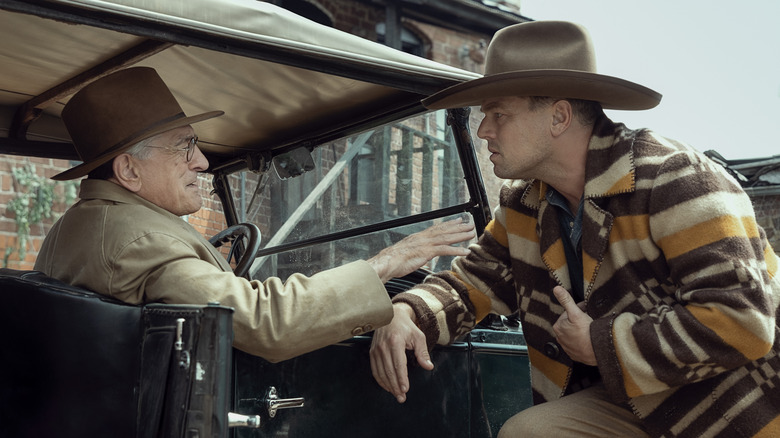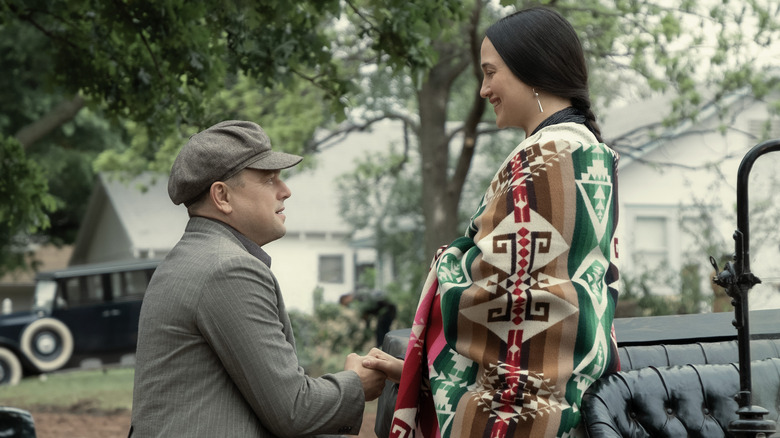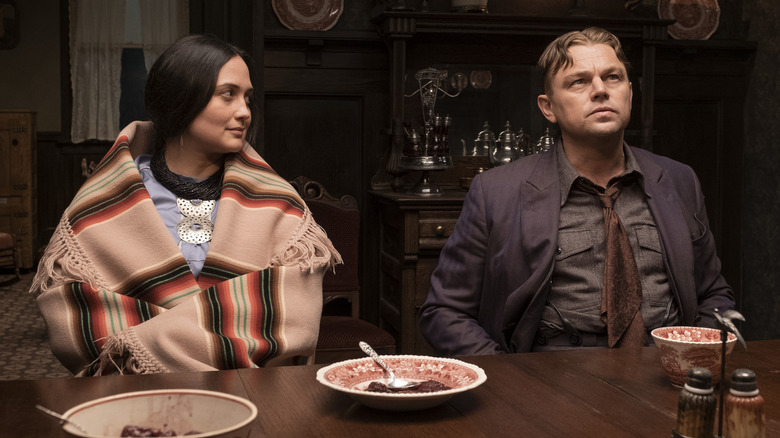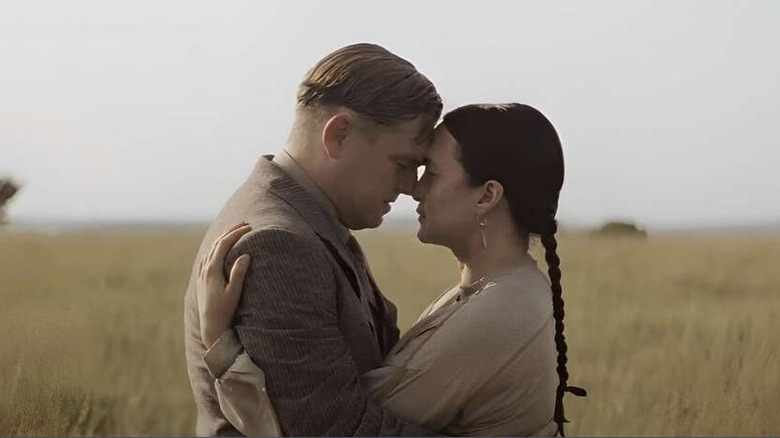Killers Of The Flower Moon Review: A Cautionary Masterpiece On The Insidiousness Of White Men [Cannes 2023]
Time and time again throughout history, the white man has proven he cannot be trusted. In Martin Scorsese's twenty-sixth film "Killers of the Flower Moon," he shows us another staggering real-life example of that very warning. The legendary director's magnificent epic traverses several years in the 1920s to tell the story of the wealthy members of the Osage Nation who discovered a massive oil well on their Oklahoma land — and as a result found themselves victim to a deceitful murder plot designed to put every dime in the hands of entitled white men. And for all of the 206 minutes you spend with this true story, it uses its entire run reminding you that betrayal can come from all sides, and it can come from those you think you know and love best. "Killers of the Flower Moon" is a cautionary tale about the ubiquitous insidiousness of white men, laying bare the notion that they will take everything from you that isn't nailed down no matter the cost. Even the ones that seem innocent and good.
It will come as no surprise that the anchor of "Killers of the Flower Moon" is its impeccable cast. Leonardo DiCaprio shines as the self-serving and spineless Ernest Burkhart, a white man who comes to Oklahoma to stay with his uncle, Robert De Niro's William Hale, and make his way. He finds opportunity there with Hale, and the wheels start turning for him on how to make a life for himself — at the expense of the kind, selfless Native people around him. DiCaprio is on fire in this film, nearly code-switching throughout as he leads a wretched double life.
Piercing the veils between truth, lies, and terror
De Niro is also a force to be reckoned with, fluctuating between generous, fatherly, and utterly diabolical. He is the instigator in all of this unnecessary violence, and the fact that the audience can't help but hate him is a testament to the veteran actor's skill at absolute sleazeball performances. Both DiCaprio and De Niro sell the twisted, greedy, and deceptive sides of the film.
But the movie's uncontested MVP is the quiet, contemplative, yet powerful Lily Gladstone, who stars as Burkhart's Osage wife, Mollie. The Native actress is a bonafide powerhouse, commanding such an assured presence on screen the audience is immediately bowled over by her on the first meeting. Goldstone has this beautifully innate ability to convey so much strength and sorrow in the same stare, her eyes piercing the veils between truth, lies, and terror in an instant to read whoever is on the receiving end. She and DiCaprio have so many of these types of interactions, and there has yet to be another female performer who holds her own against him with her level of subtle intensity. It's an understated yet unforgettable performance. The film sets her up for sheer stardom, and it's clear we will be seeing a whole lot more of her as a result of this picture — as we should.
A fiercely true representation of the film's subjects
When folks come out for a Marty Scorsese picture, chances are they're expecting something that showcases his particular directorial approach, which we now know to be full of quick and inventive cuts and great needle drops. Overall, this film isn't as stylistic as Scorsese's filmography usually leans, but it makes meals of the moments when it does veer into his now-classic filmmaking flair. The filmmaker employs a brilliant use of slo-mo and dance in the film's opening, for example, that really gives the audience the sense of carefree whimsy and the love of life the Osage people had before white men targeted them. It's both a Scorsese stylistic choice and a fiercely true representation of the film's subjects, and that's where glimpses of the filmmaker's usual style shines.
Bringing this story to life demands a great and engaging script, and this one — written by Scorsese alongside "Forrest Gump" and "Dune" screenwriter Eric Roth — more than earns its lengthy runtime. The film draws you right in by the collar and doesn't let go for over three hours, a runtime that seems grueling on paper but proves itself to be necessary and captivating all at once. Plus, the movie was heavily edited and reconstructed by the descendants and current members of the Osage nation during the height of the pandemic, and knowing that, it makes sense as to why the final script tilts so heavily toward the story of these horrific murders, rather than centering the birth of the FBI, which came as a result of this case. It's the right move, one that fills the film with worthy trials and lessons, stakes that are as high as they come. In fact, the movie would have most likely been a much weaker piece without that focus.
A fast, fierce, and unapologetic gut punch
There's no denying how sharp Scorsese's instincts are as a filmmaker, and it truly cannot be understated that, at 80 years young, he's definitely still got it. "Killers of the Flower Moon" is a fast, fierce, and unapologetic gut punch that centers the horrific abuse suffered by the Osage nation at the hands of those who were entitled to nothing and thought themselves worthy of everything. White supremacy — and the idea that the individuals after the almighty dollar are more worthy than the ones who are rightfully owed it — tends to settle itself firmly within that spectrum, and the only way to fight it is by arming ourselves with the knowledge of how it spreads and poisons as much purity as possible. Thanks to Scorsese's version of these harrowing and true events in history, we have another brilliant film aching to teach us something meaningful about all the desperate ways we engage with one another, for better or for worse.
/Film Rating: 9 out of 10



